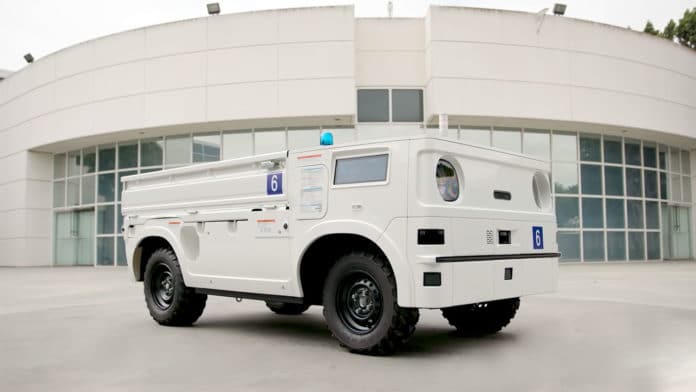At CES 2018 in Las Vegas, Honda unveiled a prototype of an autonomous off-road vehicle designed for work on construction sites, in agriculture, and for participation in search and rescue operations. The company, in collaboration with a construction company Black & Veatch, has now successfully tested the second-generation prototype Honda Autonomous Work Vehicle (AWV) at a construction site in New Mexico.
During the month-long field test, the second-generation, fully-electric Honda AWV performed a range of functions at a large-scale solar energy construction project, including towing activities and transporting construction materials, water, and other supplies to pre-set destinations within the worksite.
The Honda AWV combines the company’s rugged and durable off-road side-by-side platform with emerging advanced autonomous technology. It employs a suite of sensors to operate autonomously, using GPS for location, radar, and LiDAR for obstacle detection, and stereoscopic (3D) cameras for remote monitoring. The vehicle can also be operated by remote control.
The vehicle has a maximum loading capacity of up to 399 kg (880 lbs) and can tow up to 750 kg (1,653 lbs), including the weight of a trailer. Besides, the AWV has a fully-loaded range of up to 45 km (28 miles) – for every six hours of charge – depending on the use case.
During the field test at a solar energy construction site, the off-road vehicles successfully delivered materials and supplies along a calculated route in the 1,000-acre site. The field test also demonstrated the viability of the Honda AWV battery system to support energy-intensive sensors and provide vehicle propulsion while operating for up to eight hours in a high-temperature environment.
Honda believes the Honda AWV will be capable of providing a wide range of services to a variety of industries that need a rugged off-road autonomous solution, especially where workforce constraints and safety concerns make other solutions impractical. The ability to operate autonomously or via remote control and carry large payloads, along with the potential to add attachments and tools, makes the Honda AWV a suitable platform for many work environments.
The company has not announced commercialization plans for the Honda AWV but continues to advance the platform through field testing.
